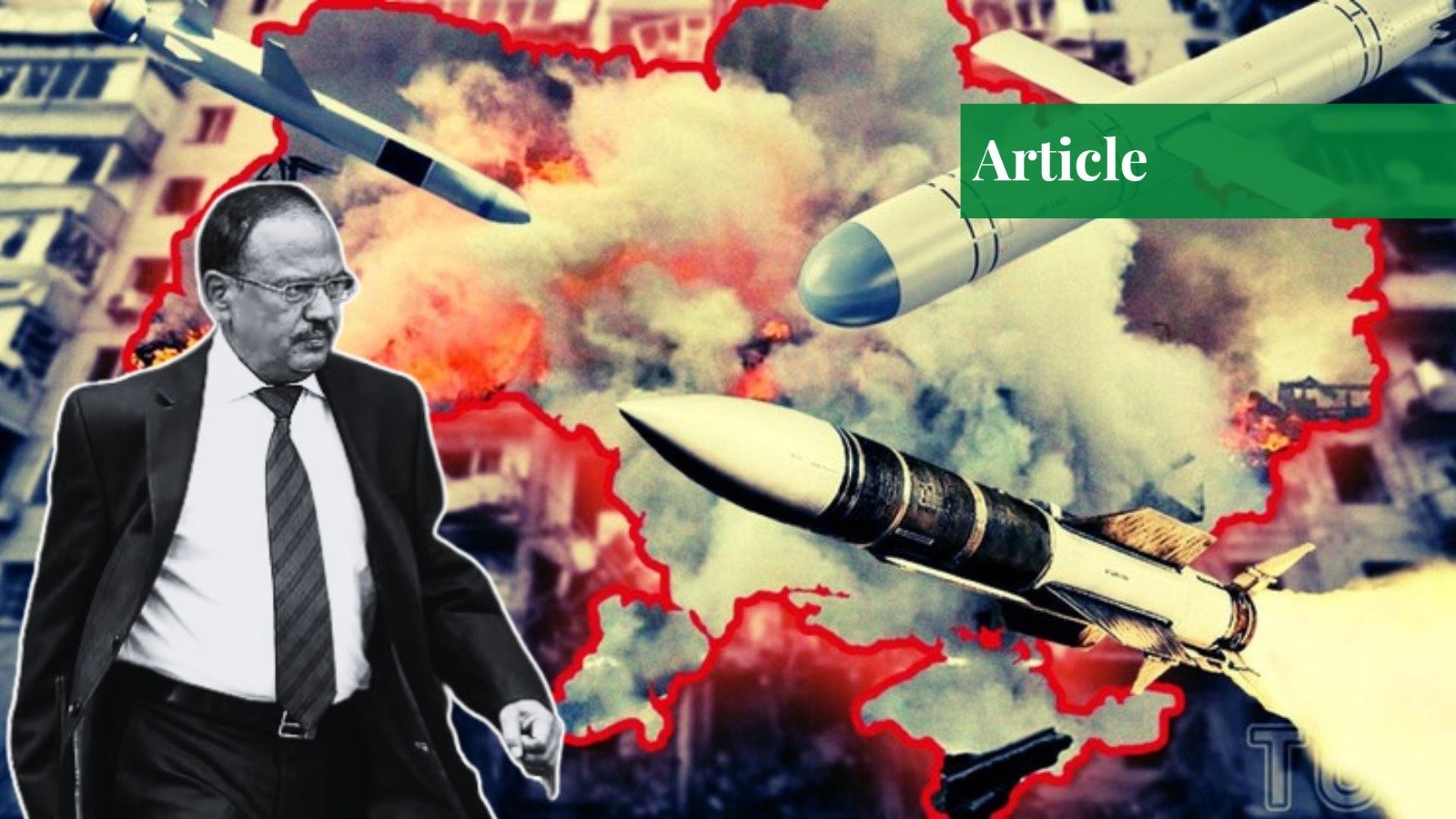Right after Prime Minister Narendra Modi’s inauguration in 2014, his newly appointed National Security Advisor Ajit Doval gave a speech at Sastra University that came to define what we now know as the “Doval Doctrine.” In that speech, he stated, “Pakistan’s vulnerability is many times higher than India’s. Once they know India has shifted to defensive offense, they will find it unacceptable for them.” He warned that “You can do one Mumbai; you may lose Balochistan.” He added that “There is no nuclear war involved in that; there is no engagement of troops.” In a tone full of arrogance, he said, “They know the tricks; we know the tricks better.” Doval’s speech hinted at India’s willingness to stir up instability within its nuclear-armed neighbor, Pakistan. He also implied that confrontation is not limited to traditional war but has shifted towards covert operations, information warfare, and calibrated destabilization.
India’s covert operations and shadow wars in Pakistan were brought in front of the international community with the arrest of Kulbhushan Jadhav in 2016. Jadhav, an Indian naval officer and an operative of India’s intelligence agency, Research & Analysis Wing (RAW), was operating under the name of “Hussain Mubarak Patel.” He was responsible for dozens of terrorist attacks, including the ones on the Mehran Naval Base and the Sui gas pipeline. He was also behind the assassination of SSP Aslam Chaudry, a counter-terrorism police officer. Jadhav was assisted by sub-inspector Rakesh (alias Shaikh Rizwan Hussain) and former RAW joint secretaries Anil Kumar Gupta and Alok Joshi. In a confessional video, Jadhav admitted how India’s plan involved fomenting instability in Balochistan, sabotaging CPEC, and undermining Pakistan’s national security. He also disclosed that RAW funded and directed the Baloch movements, including sabotage activities.
India’s use of proxy warfare is not a new development and is not limited to Pakistan. India employed such tactics in the early 1970s by creating and supporting Mukti Bahini in East Pakistan and backing the Liberation Tigers of Tamil Eelam (LTTE) in Sri Lanka. India’s recent covert operations have become highly sophisticated in Pakistan, with the recent attack on the Jaffar Express in Balochistan, which was disproportionately amplified by Indian media to fuel anti-Pakistan rhetoric and frame it as a full-blown crisis. Besides operation coverage, the Indian media also featured Jeeyand Baloch and Bahot Baloch, members of terrorist groups. Just two months before the Pakistan-India May conflict, the Baloch Liberation Army (BLA) publicly declared its support for India by calling itself the Indian military arm. BLA’s declaration of support for India and then the deadly suicide car bomb attack on a school bus in Khuzdar, right after the India-Pakistan conflict on May 21, highlight the BLA-RAW nexus.
Pakistan’s strategic alliance with China and the China-Pakistan Economic Corridor (CPEC) have always been a thorn in Indian side. In 2015, RAW set up a covert operation cell with $500 million in funds to sabotage CPEC. Primarily, the cell was responsible for destabilization in Balochistan and KPK province. The objectives of the cell included exploiting political division and targeting key CPEC infrastructure.
Commander Aslam (alias Achu) of the BLA Majeed brigade masterminded the 2018 attack on the Chinese consulate in Karachi, which was acknowledged by the group’s spokesperson, Jeeyand Baloch. Aslam got his instructions from RAW, and he also got medical treatment for some time from India’s Max Hospital, which was made possible by RAW. Aslam also co-masterminded the 2019 Gawadar PC hotel attack along with RAW handler Anurag Singh with $0.5 million funding, which ex-BLA commander Gulzar Imam later confirmed in his confessional video. Moreover, there was the 2022 suicide bombing at Karachi University targeting a van carrying Chinese officials, which resulted in the killing of three Chinese and one Pakistani. The bombing was a coordinated effort by BLA and RAW to drive a wedge between Pakistan and China.
Pakistan security officials claimed RAW’s collaboration with Afghanistan’s former National Directorate of Security (NDS) in carrying out cross-border attacks in Pakistan until the Taliban takeover in 2022. Attacks continued even after the Taliban takeover; former NDS operatives went into hiding inside the current Taliban regime and continue aiding RAW to support TTP. The 2022 attack carried out by BLA on Frontier Corps camps in Panjgur and Noshki by using Afghan-origin weapons points to this RAW-TTP nexus. RAW funded $820,000 to reunify TTP groups, arming them through Herat province, intensifying IED attacks, and targeting killings, just like the one in the 2023 assassination of Brigadier Mustafa Kamal Burki in North Waziristan. The 2025 UN report clearly highlights growing ties between TTP, BLA, and ISKP with Afghan training camps in Spin Boldak and Nimroz. Pakistan intelligence reports state that RAW is funding these terrorist groups via smuggling, offshore shell companies, and cryptocurrency.
Hybrid warfare is also affecting Pakistan’s security with cyberattacks, disinformation, and the destabilization of institutions through proxies and propaganda. In 2020, the EU Disinfo Lab exposed India’s fifteen-year disinformation campaign involving fake media outlets and NGOs to shatter Pakistan’s image globally. Whereas, cyberattacks were traced back to Indian IP addresses. There was a surge in propaganda during the FATF review, with India employing firms like Cornerstone Government Affairs to weaken Pakistan diplomatically, economically, and politically.
India’s shadow war and operationalization of the Doval Doctrine in Pakistan, which involves proxy warfare, disinformation campaigns, assassination, sabotage, and espionage, highlights a strategy to undermine Pakistan both diplomatically and economically without any confrontation. The objectives of India’s shadow war revolve around shattering Sino-Pakistan relationships and affecting Pakistan’s development trajectory. Indian-backed terrorists have evolved their tactics from guerrilla warfare (hit & run) to target killing of high-value individuals and hitting critical infrastructure. India’s hegemonic posture is drawing China and Pakistan closer to each other rather than creating a wedge. With the US designation of the BLA’s Majeed Brigade as a terrorist entity, this has further strengthened Pakistan’s resolve to counter terrorism and security threats from Indian-backed proxies. Pakistan remains committed to peace and stability, whereas India’s actions are jeopardizing these objectives.
If you want to submit your articles and/or research papers, please visit the Submissions page.
To stay updated with the latest jobs, CSS news, internships, scholarships, and current affairs articles, join our Community Forum!
The views and opinions expressed in this article/paper are the author’s own and do not necessarily reflect the editorial position of Paradigm Shift.
Zohaib Arif is currently pursuing his Bachelors in Strategic and Nuclear Studies from the National Defence University Islamabad. His areas of interest are Nuclear Deterrence, Geopolitics and Modern Warfare.



